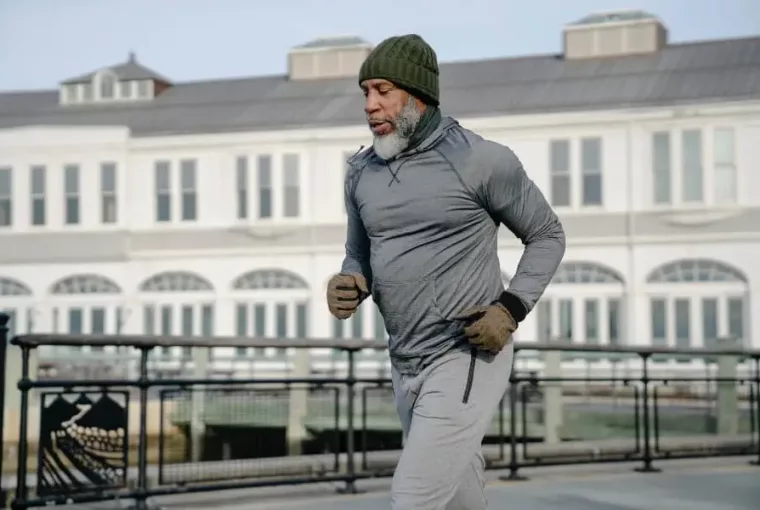Aging is a natural and inevitable process. With age comes a few advantages like experience, maturity, and sometimes wisdom. However, as you grow older, the health of your physical body and mind are bound to deteriorate. People above 65 years are more prone to falling sick, especially if they have pre-existing conditions such as diabetes, asthma, arthritis, and cancer. They may also suffer from mental illnesses such as dementia, Alzheimer’s, and depression. Therefore, if the senior in your life isn’t well taken care of or doesn’t practice self-care, they may easily spend their golden years sick, unhappy, and unproductive.
This shouldn’t be the case. Getting older doesn’t write off the importance of living a healthy, quality life. This article will highlight some of the senior healthcare habits that can see to it that you or your loved one lives a vibrant and independent life even in old age. The health habits include;
1. Adopting An Exercise Routine
Exercising helps to boost your immune system. The more you move, the lesser the chances of suffering from heart diseases and lifestyle conditions like diabetes. Additionally, physical activity helps you ease inflammations, joint paint, and other chronic pain.
Moreover, the benefits of exercising pour over into your mental health. Seniors with a personalized exercise regime tend to be happier and their emotions more consistent. They can also maintain their mental health as seen from the clarity of their decision-making. This comes in handy, especially for older people who live alone or are seeking to stay independent.
Although exercising is often linked with long hours of subjecting your body to intense movement to attain a fitness goal, it isn’t the case for seniors. For older people, exercising means setting aside at least 30 minutes every day to be active. Exercises shouldn’t be strenuous or unnecessarily painful. The recommended physical activities include walking, yoga, low-impact aerobics, biking, dancing, and swimming. Before starting any physical activity, always consult with your doctor.
Experts also recommend that you have an exercise partner. It makes the activity more fun and motivates you to be more committed to the routine. More importantly, in case of any emergency, there is someone to act promptly.
2. Have A Healthy Diet
Having a healthy diet goes hand in hand with exercising. Consuming unhealthy food counteracts the impact of your 20-30 minutes of physical activity.
So, what exactly is a healthy diet, and how do you adopt one? A healthy diet for seniors consists of vegetables, fruits, fiber, plenty of water, and lean meat, to mention a few.
Fruits and vegetables are high in antioxidants. This chemical compound helps protect your cells from damage. Fruits that are rich in Vitamin C help boost your immune system to fight minor illnesses such as colds and coughs. Remember, if you aren’t healthy in old age, a cold can easily turn into more serious complications like pneumonia.
As you grow older, digestion also slows down. To avoid stomach-related issues like constipation, it’s recommended you consume lots of fibers. Fibers also help with weight loss, which also aids in managing conditions like diabetes, high cholesterol levels, and heart diseases.
Nutritionists recommend that an adult male consumes at least 34 grams of fiber while the female takes 28 grams. This amount increases as you age. Therefore, be intentional with your fiber intake. You can get fiber from consuming fruits and vegetables, whole grains, legumes, nuts, and seeds.
Part of a healthy diet is avoiding some habits and foods. For example, when you’re a senior, it’s recommended that you limit your alcohol intake. You can reserve it for special occasions while still limiting it to a glass of wine or a bottle of your favorite brew. However, before taking alcohol, always consult with your doctor as it may counteract some types of your oral medications and prescriptions.
You’re also advised against consuming sugary and fatty foods. Such foods tend to trigger inflammation in your body and contribute to lifestyle diseases like diabetes and hypertension. You may want to stay clear of them as an additional precaution.
Do note that the diet for each individual may be different, depending on your needs and medical conditions, if any. Thus, it is best to follow your doctor’s advice.
3. Get Enough Rest
Doctors recommend that seniors get about eight hours of sleep a day. If you feel tired during the day, you can also take naps. When you don’t get sufficient rest, you risk developing some lifestyle complications like high blood pressure, obesity, stress, and heart diseases. Lack of rest can also lead to anxiety, irritability, memory loss, and depression.
Since seniors may struggle with insomnia, it would be best if you made sure their bedroom and living conditions are quiet and comfortable. Here’re more tips to help with insomnia:
- Turn down the lights in the evening to trigger drowsiness
- Switch off all screens and put away the mobile phone at least 30 minutes before bedtime
- Avoid beverages containing caffeine and alcohol
4. Maintain Connection With Family, Friends And Be Active In The Community
It can get lonely with old age, especially since most of the people you may know have passed on or your children are away due to work or family responsibilities. However, if you’re looking to be happy and productive, the last thing you should do is entertain loneliness.
Therefore, be intentional about staying connected to the community. You can do this by going to church or attending community meetings and events. Learn new skills and explore hobbies with your friends in the community to stimulate your mind and reduce boredom.
Visit your family and friends or request regular visits from them. This helps you be socially active, which triggers a sense of meaning in life.
Make It A Habit
When embarking on a fitness journey, it’s crucial to start slowly and gradually increase the intensity to avoid burnout or injuries. Consistency is key, as establishing a workout routine and making it a habit leads to long-term success. The Greatness app can play a pivotal role in this process, providing a platform to track your progress, set achievable goals, and receive personalized reminders and motivation. By utilizing its features, such as habit-building tools and progress tracking, the app can support you in staying committed and making fitness an integral part of your daily life.
Take Away
When in your golden years, it doesn’t mean spending most of your time cocooned indoors. Live a healthy and active lifestyle. Take charge of your life and enjoy the freedom that goes with it. All the best!




